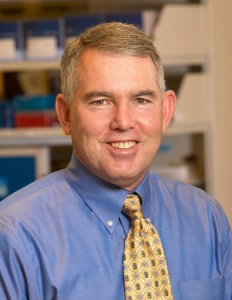Jeffrey M. Trent Lectureship in Cancer Research Series
Event Details
Jeffrey M. Trent, Ph.D., F.A.C.M.G, was the National Human Genome Research Institute's (NHGRI) founding scientific director, serving in this role for more than nine years. His leadership and vision were instrumental in establishing NHGRI's Division of Intramural Research as one of the premier research programs in the world devoted to genetics and genomics. In recognition of his significant contributions to the research environment at the National Institutes of Health (NIH), NHGRI established the annual Jeffrey M. Trent Lecture in Cancer Research in 2003. This lecture is given by a prominent cancer researcher who brings the kind of energy, creativity and enthusiasm to cancer research that Dr. Trent has exemplified throughout his career.
Hybrid: Virtual and In-Person
2024
December 11, 2024, at 1:00 p.m. - 2:00 p.m. ET
Tip to Tail: Genetics of Cancer and Morphology in the Domestic Dog
Elaine Ostrander, Ph.D.
Chief and Distinguished Investigator
Cancer Genetics and Comparative Genomics Branch
The domestication of dogs from wolves is, arguably, the most successful scientific experiment undertaken in human history. Our planet is populated with millions of dogs representing 350 breeds, village dogs, feral dogs and mixed breed dogs. Key to understanding canine variation is the study of modern and ancient genomes sampled from dogs around the world. Our studies encompass evolution, genomics and genetics, as we seek to understand how dog breeds have been shaped by humans, why some breeds are prone to specific diseases, and what accounts for the striking differences in appearance and behavior observed between breeds. By studying the genome sequence of modern and ancient dogs we show that most breed-associated traits, including disease associations, are controlled by small numbers of genes of large effect, and that most of these genes are relevant for studies of human health and biology.
Contact Staff

- Program Specialist
- Office of the Scientific Director
Last updated: January 8, 2025

 Jeffrey M. Trent, Ph.D., F.A.C.M.G, was the National Human Genome Research Institute's (NHGRI) founding scientific director, serving in this role for more than nine years. His leadership and vision were instrumental in establishing NHGRI's Division of Intramural Research as one of the premier research programs in the world devoted to genetics and genomics. In recognition of his significant contributions to the research environment at the National Institutes of Health (NIH), NHGRI established the annual Jeffrey M. Trent Lecture in Cancer Research in 2003. This lecture is given by a prominent cancer researcher who brings the kind of energy, creativity and enthusiasm to cancer research that Dr. Trent has exemplified throughout his career.
Jeffrey M. Trent, Ph.D., F.A.C.M.G, was the National Human Genome Research Institute's (NHGRI) founding scientific director, serving in this role for more than nine years. His leadership and vision were instrumental in establishing NHGRI's Division of Intramural Research as one of the premier research programs in the world devoted to genetics and genomics. In recognition of his significant contributions to the research environment at the National Institutes of Health (NIH), NHGRI established the annual Jeffrey M. Trent Lecture in Cancer Research in 2003. This lecture is given by a prominent cancer researcher who brings the kind of energy, creativity and enthusiasm to cancer research that Dr. Trent has exemplified throughout his career.